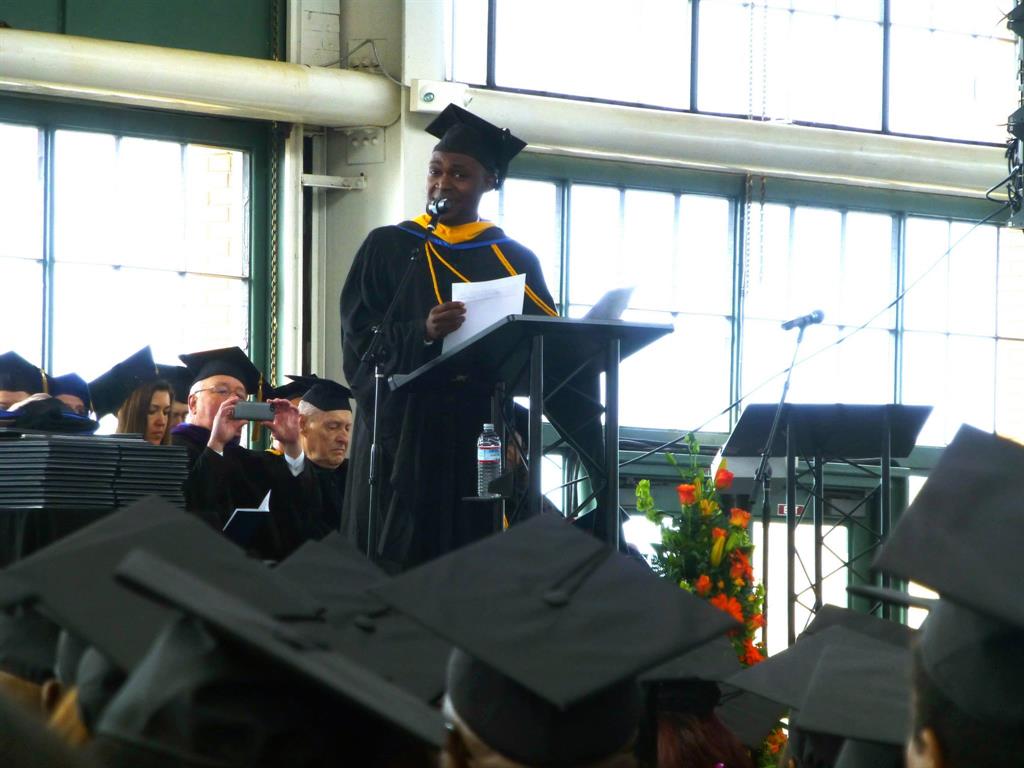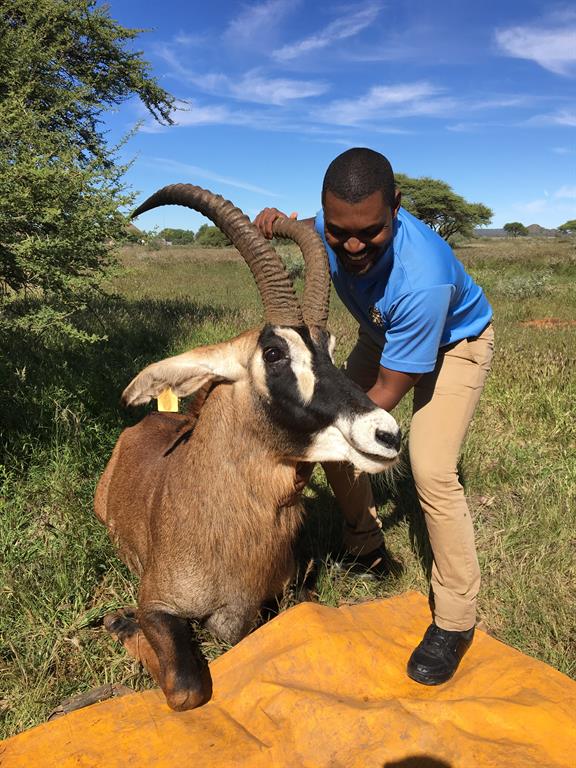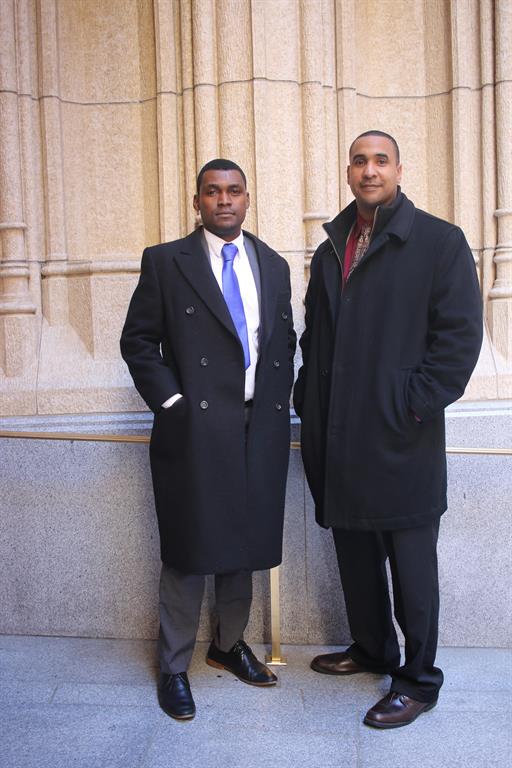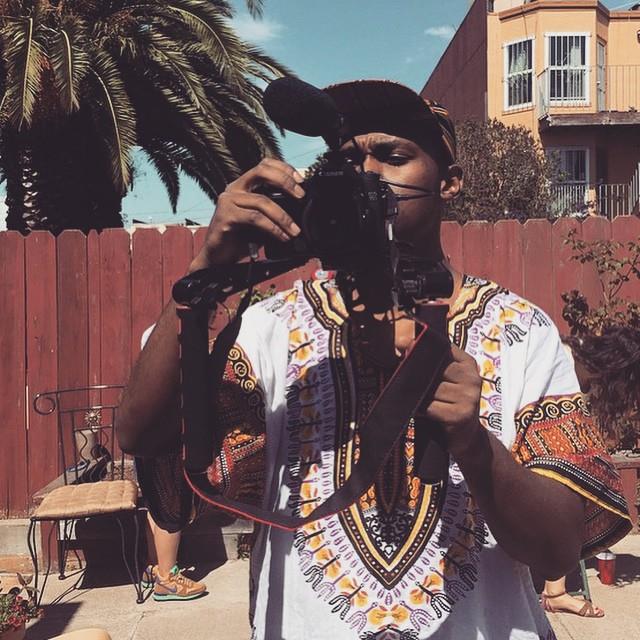Doing his civil duty
In December 2017, Kavena Hambira was elected as the chairperson of the Namibia Institute for Democracy’s board - one of many feats he has accomplished in his young career.
mibia Institute for Democracy (NID) is well-established through partnerships with civil society, NGOs, government agencies as well as the private sector. The NID has successfully implemented civic education, civil society development, socio-political surveys and anti-corruption programmes in Namibia. After his election as the director in 2017, Kavena Hambira has been working hard to change the system.
“To be frank, the calibre of the NID as an institution made them highly visible, and I had actually been stalking them before I caught their attention. What sets the NID apart is their focus on capacity building and training, which is an area that aligns directly with my academic background and experience with conflict resolution,” said the 33-year-old.
However, while working as a European Union (EU) master trainer by capacitating civil society organisations (CSOs) in the Otjozondjupa Region last year, he noticed a gap in the NGO space precipitated by NID’s absence.
“I reached out to their former chairperson and executive director to discuss a potential revival. Following an additional 13 months of planning, developing new strategic roadmaps, as well as appointing fresh talent to the board, the institute is back,” said Hambira.
He is also serves as the executive advisor of Wildlife Ranching Namibia (WRN), which is a non-profit organisation representing the interest of the majority of game ranchers across the country.
“As the executive advisor to the council, my main function is to liaise between game ranchers and governmental and other non-governmental institutions on matters such as the proposed Protected Areas and Wildlife Management Bill and electronic permit system,” explained Hambira.
“WRN also recognises the need to diversify by affording emerging game farmers an opportunity to benefit from the industry; therefore I was tasked by council to drive the transformation committee.”
Asked about how wildlife ranching can contribute to the economy of the country, Hambira mentioned food security.
“Game is an excellent source of protein, is low in cholesterol and costs less than beef. Sustainable use of game products allows us to utilise a key natural resource,” he said. “Secondly, the wildlife economy has the potential to unlock jobs and create wealth for marginalised communities.”
After being awarded with a Fulbright scholarship, he completed a master in science degree, specialising in human resources at Golden Gate University in 2014. He also received a certificate in conflict resolution with the UC Berkeley extension programme in 2015.
“This gave me a competitive advantage and I soon landed up in San Francisco’s financial district as a corporate head-hunter in the banking and financial services industry,” he narrated.
“After surviving corporate America, I returned to Namibia to an offshore our US recruitment firm and encountered a range of overwhelming challenges. I registered an SME, which is the Onangalo Business Solutions CC, and today the business continues to grow, one client at a time.”
Hambira has a few other accolades to his name, such as having his short documentary film being screened at Stanford University in California and being the first African student to be selected to give a commencement speech at Golden Gate University’s graduation ceremony, all in 2014.
“This was indeed one of the greatest honours of my life as this was the first time in the 117-year history of institution to have an African student on that platform.”
In 2008, the Ohlthaver and List (O&L) Group of companies initiated its first Talent Attraction Program, by investing heavily in talent acquisition and development.
“This also happened to be my first job out of university, with zero work experience.”
Hambira says he was fortunate to have a loving father who raised him to be an independent thinker.
“Unfortunately he was killed in a car accident a few months after my 14th birthday. In essence, I am the product of a single parent home and my mother has been at the cornerstone of my existence since birth,” he says.
Hambira grew up in the Luanda transit refugee camp and moved to East Germany as a disarmament, demobilisation and reintegration (DDR) child.
“My mother has always been present in my life. Her unconditional love and humble roots keep me grounded and I truly have no amount of words to thank her for her endearing support in all of my pursuits.”











Comments
My Zone
No comments have been left on this article